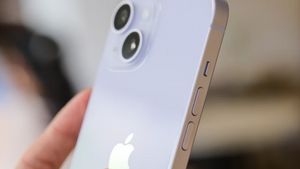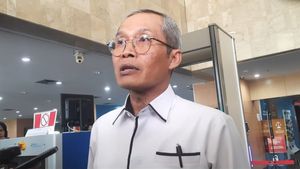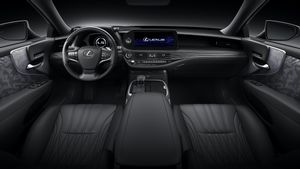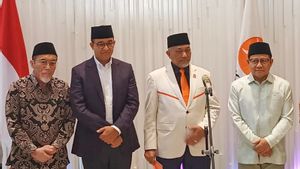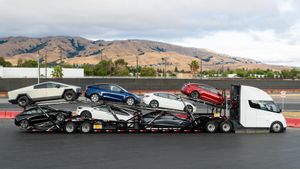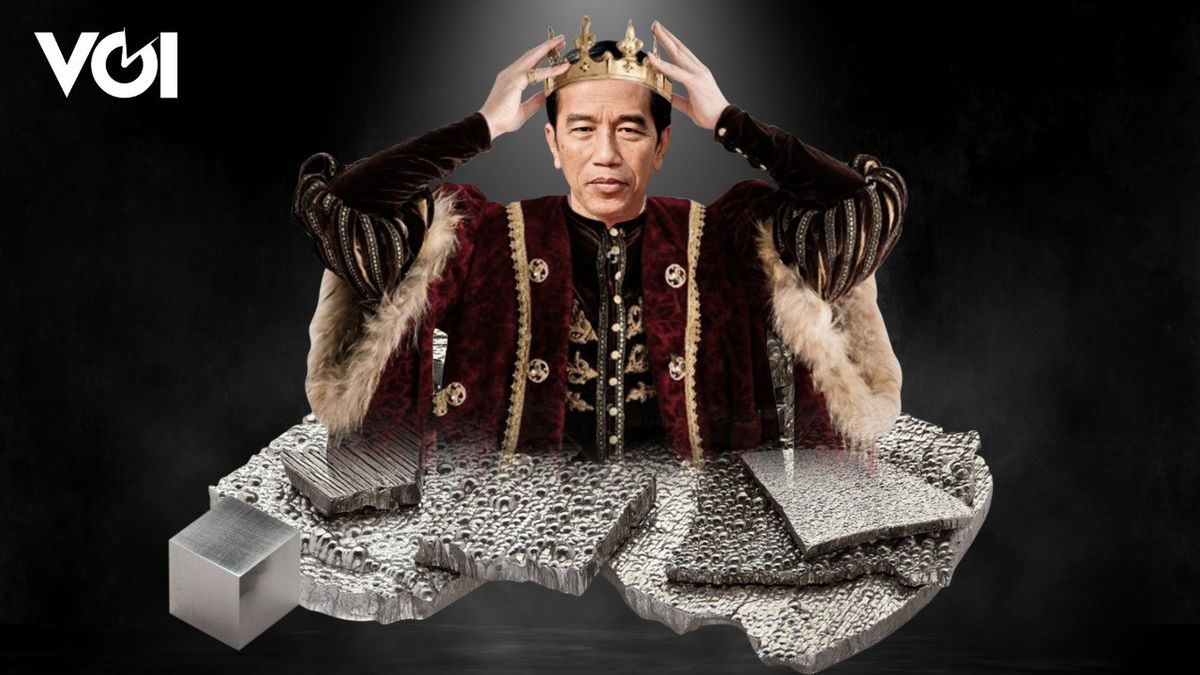
Still part of VOI's Typical Writing Series, "The Sting of the Charm of Electric Cars". In the article "History of the World's Electric Car through a Series of Revolutionary Findings", we have described the long history of electric cars in the world. Now take a look at this condition. About Indonesia, which has great potential to be the king of electric car batteries in the world.
Indonesia controls 30 percent of the world's nickel reserves and resources. The amount is estimated at 21 billion tonnes. Other important battery component materials, such as aluminum, copper, manganese, to cobalt are also spread out in the country. This was revealed by the Acceleration Team for the Electric Vehicle (EV battery) project, Agus Tjahajana Wirakusumah, during a hearing with Commission VII DPR RI, Monday, February 1.
Based on the mapping of the Geological Agency, which was quoted on the ESDM Ministry website, in July 2020 Indonesia had nickel ore resources of 11,887 million tons. Meanwhile, the total metal resources in Indonesia reached 174 million tons and 68 million tons of metal reserves.
The metal reserves include nickel, which lies widely in Southeast Sulawesi, Central Sulawesi and North Maluku. Not wanting to waste this award, President Joko Widodo (Jokowi) made Presidential Decree 55 2019 concerning the Acceleration of the Battery Electric Vehicle Program for Road Transportation.
The main commissioner of PT Indonesia Asahan Alumunium (Persero) Agus Tjahajana Wirakusumah explained to VOI that there were two special teams formed to manifest the electric car acceleration program. First, a team that specializes in developing the electric car industry. This team is led by the Coordinating Minister for Maritime Affairs and Investment Luhut Binsar Panjaitan. The second team he leads: the electric vehicle battery project acceleration team.

"Regarding Perpres 55, there are two teams formed by the president to accelerate the number of electric vehicles. If the car is led by Pak Luhut. So it is different. My team is only for the battery," said Agus.
Seeing the abundant potential of battery raw materials, Agus and his team are ambitious to be able to produce electric car batteries in the next few years. Later, electric car batteries will be made to meet the local and export electric car market.
"Whether it is used locally, it can also be exported. Because it is necessary to make a large number of vehicle batteries," said Agus.
Agus explained that the team formed by BUMN Minister Erick Thohir will focus more on producing batteries for export. "There are not many markets in us, so we have to export them like it or not," he said.
The initial step for Agus' team, led by Erick, was to create a consortium that collaborated with three state-owned companies. The three companies are PT PLN (Persero), PT Pertamina (Persero), and PT Inalum itself.
"Our first step will be to create a consortium. From there we will work together with partner investors," said Agus.
From the regulation, Agus said that he had asked for government assistance to create a safer economic climate. "The return is more secure."

Automotive expert, Bebin Djuana, assessed that Indonesia could become a great country if it succeeded in building a production center for electric car batteries. "The whole world depends on Indonesia. My prediction is Indonesia will be in the top three," said Bebin to VOI.
Currently, the world is in a race to develop battery technology as a vital component of electric cars. These industry players are looking for a solution to two of the main problems of electric cars: battery capacity for longer mileage and charging speed.
Bebin explained that currently engineers are trying to increase the average distance traveled by electric motors from 100-200 kilometers to 200 kilometers. "Of course with a battery that allows it to be carried."
In terms of charging speed, to reach 80 percent of the battery the fastest is up to 45 minutes to 30 minutes. "For 100 percent, it is certainly longer. That is what is now being developed to be faster."
Recently, one of the technologies that has been widely heard to solve these two problems is the use of supercapacitors. One that is developing this technology is a sports car company, Lamborghini. What are supercapacitors?
SupercapacitorSupercapacitors are energy storage devices that have been used widely in electronics and transportation, including electric vehicles. Teguh Ariyanto et al, in a paper published by the Diponegoro University Reaktor journal explained that supercapacitors have advantages compared to other energy storage devices such as batteries.
From a technical point of view, the supercapacitor has a relatively large number of cycles (> 100 000 cycles). This means that the supercapacitor will last longer when recharging. In addition, the supercapacitor also has a high energy density, the ability to store large amounts of energy, simple principles and easy construction.
Then in terms of user-friendliness, supercapacitors can also increase safety. Because, there are no corrosive materials and less toxic materials.
Now, the question is what if this supercapacitor technology is successfully developed and mass produced, will it threaten the throne of Indonesia which is predicted to dominate the electric battery industry? The answer is no.
Not a threatAutomotive observer Bebin Djuana explained that supercapacitors cannot replace the role of batteries in electric cars. Supercapacitors, said Bebin, are only complementary.
"The supercapacitor is to complement. This is not a substitute. As a support, yes. Supercapacitor cannot replace a battery, how do you try it?" said Bebin.
Supercapacitors, said Bebin, are mainly focused on temporary energy storage. Meanwhile, the battery is a storage area for a longer period of time. Not to mention, said Bebin, this technology is only needed by cars with extreme speeds.
"Supercapacitors are usually not used for everyday cars. Cars like Lamborghini do need supercapacitors. But for everyday cars, including public transportation, such as taxis, what do you use expensive capacitors for there," he explained.
Bebin also said that even if the supercapacitor was produced massively, it would not affect Indonesia's potential to become a major producer of electric car batteries. In fact, if the raw materials for making supercapacitors were in Indonesia, this country would be even more successful.
"The whole world depends on Indonesia. The proof is that Tesla wants to build a battery factory in Indonesia. They think it is more efficient to make batteries in Indonesia, because the material is in Indonesia," said Bebin.

Still according to Teguh Ariyanto et al in a writing in the Reactor journal, Diponegoro University. The paper describes the materials used to make supercapacitor electrodes, one of which is porous carbon. And that material can be made from natural ingredients, namely coconut shell.
In fact, thanks to technological developments, in 2018, four researchers from the Bandung Institute of Technology (ITB), as quoted by the bpbd.or.id page, managed to utilize palm oil waste to create a special supercapacitor for electric cars. This further strengthens Indonesia's position as a major electric battery producer. As we all know, Indonesia is one of the largest palm oil producing countries in the world.
Follow the Writing of This Edition Series: Electric Car Charm Stings
The English, Chinese, Japanese, Arabic, and French versions are automatically generated by the AI. So there may still be inaccuracies in translating, please always see Indonesian as our main language. (system supported by DigitalSiber.id)


